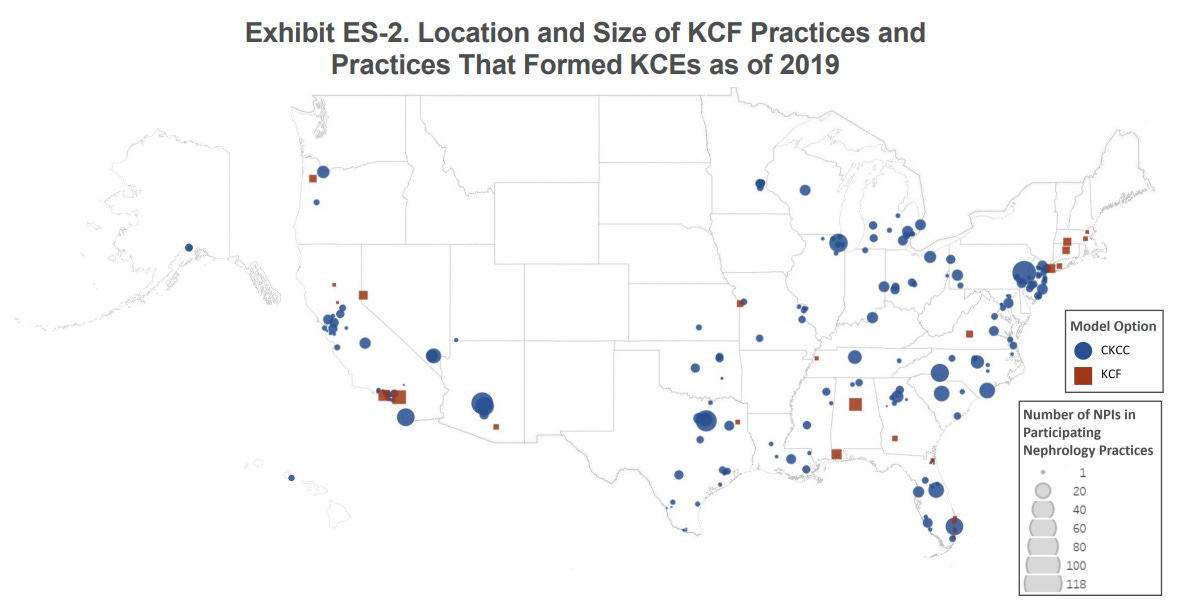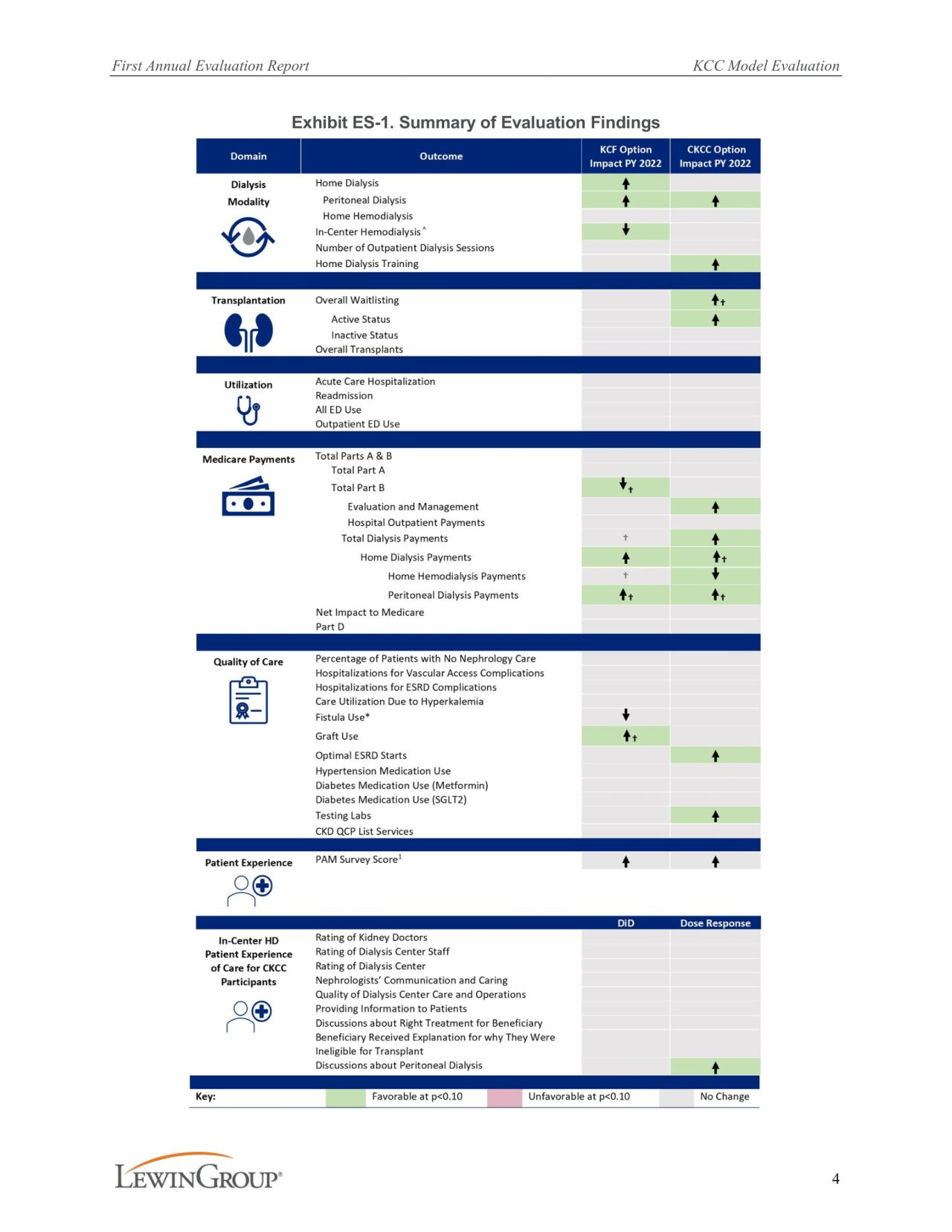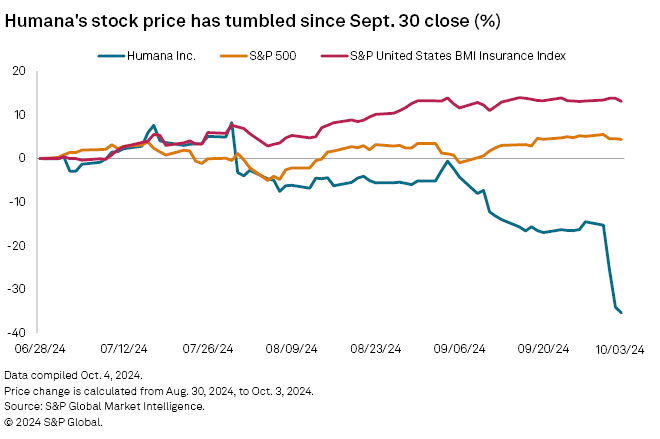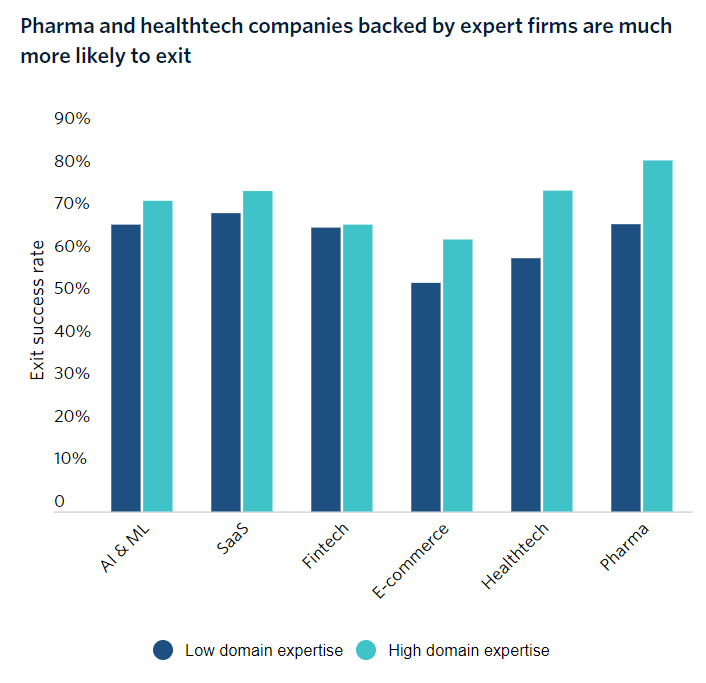Signals Weekly: Helene's dialysis toll; KCC results are in; Humana MA ratings cut; Mendaera's $73M Series B; & More...
Your weekly collection of news, research, funding & community voices shaping the future of kidney care.
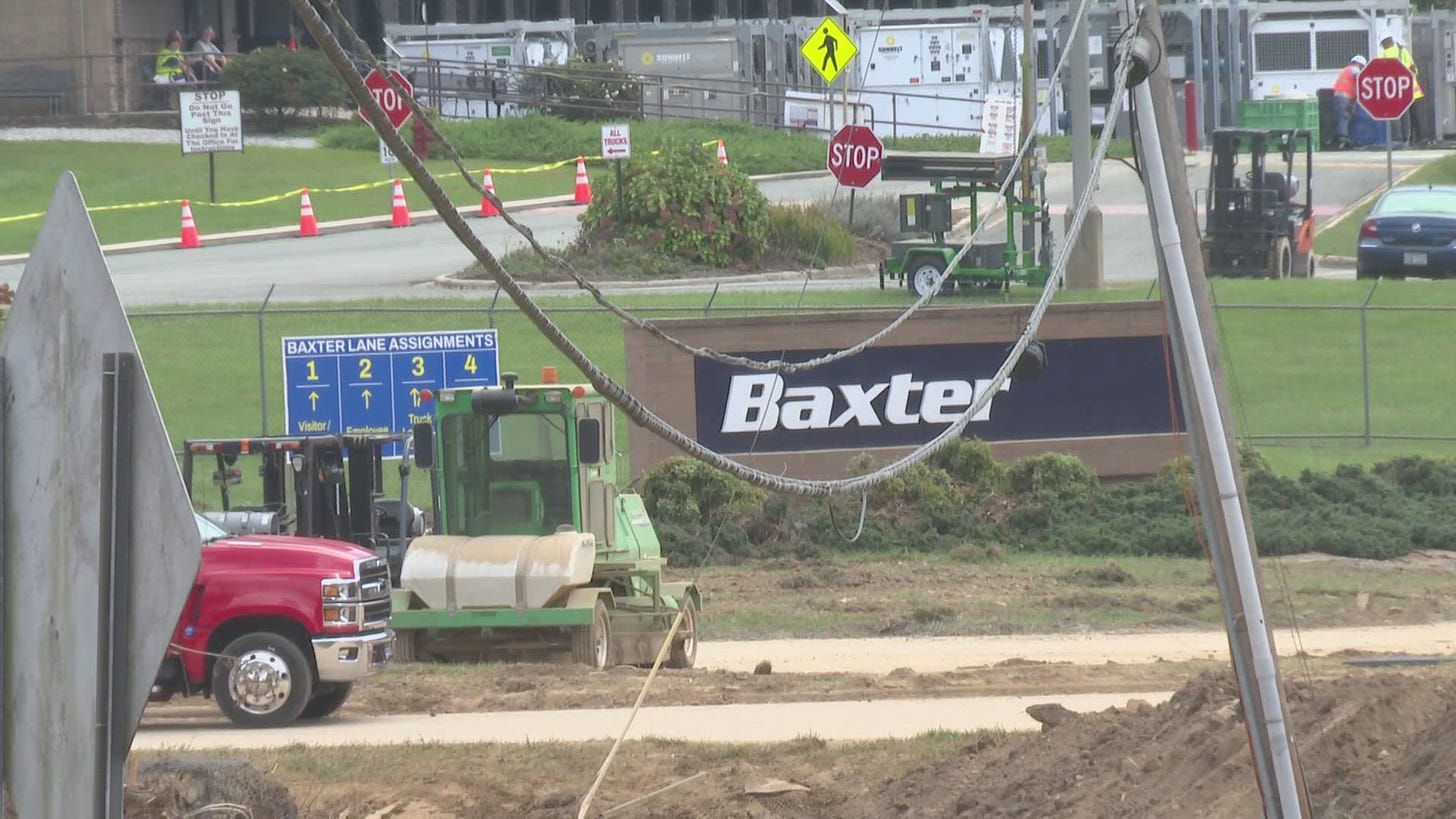
Before we dive in, let’s take a moment to recognize the communities across the southeastern U.S. still reeling in the aftermath of Hurricane Helene. The images and stories are devastating, especially for those who rely on life-sustaining treatments like dialysis. These treatments require electricity, clean water, and safe spaces away from storm damage. Power outages, clinic closures, and supply shortages have left vulnerable residents at serious risk. A heartfelt thank you to everyone who has stepped up to make a difference in the lives of others this week.
🧰 AKF put together this list of state and local resources if you or someone you know was impacted.In this week’s issue of Signals, we're taking a closer look at the initial reactions to the first Kidney Care Choices (KCC) results and what we might expect from next year’s outcomes. As we prepare for the big fall conference season, I’d love to hear from you. How are you interpreting these results? What impacts are you seeing on the ground? And will I see you at Kidney Week?
This is your weekly collection of news, research, funding and voices shaping the future of [kidney] care. All Signals posts and our full archive are now completely free to read, thanks to our sponsors.
This issue is presented by IKONA, the leading VR platform for kidney education & training, designed to support patient education and workforce training in dialysis clinics, practices, and beyond.
🚀 Apply to sponsor SignalsThis week
Poll: KCC results are in-line with expectations
Hurricane Helene hits the dialysis supply chain
Humana shares drop after surprise MA ratings cut
Mendaera raises $73M Series B for needle-based robot
Discrimination lawsuits mounting in kidney transplant policy
DaVita Appoints New COO, David Maughan
Specialist vs. generalist VCs in healthtech & pharma
ANNA launches new fellowship program
Mass General continues hospital at home push
Why Rural areas are specialty care deserts
& More…
CMS releases KCC results
CMS recently published the First Annual Evaluation Report for the first year following implementation of the Kidney Care Choices Model (KCC).
In this week’s Signals poll we asked for your take on these results. The majority of respondents (64%) said they were in-line with expectations. Nearly one-quarter (23%) of you said they were worse than expected. Many of you point to next year’s report before we know which direction we’re headed (and how entities are performing).
It sounds like early consensus is that these optimal starts and home dialysis numbers are early wins, but we’re also hearing big questions remain around the impact of these models on transplant, quality measures, and overall spend — which are ultimately the key aims of these models in CMS’ view.
I thought I’d share a few insightful perspectives from some of you on LinkedIn:
Maria Beninati: “As someone working in an organization that is part of the CKCC program, the first year was SO MUCH LEARNING. I am not surprised by these results but really look forward to seeing how outcomes are impacted in years two and three!”
Rajesh Davda: “Quality did not change but that can take time and spends on measures. Good to see PAM increase. Most concerning is cost did not decrease. Cost is the cornerstone and likely due to no change in utilization metrics and no increase in transplant. Cost also did not decrease despite increased conservative care. For now, just shuffling of chairs.”
Sean O’Sullivan: “Glad to see an increase in optimal starts and home dialysis. Proud to be a participant in KCC!”
Miriam Godwin: “IMO, the most promising finding is optimal starts. The community should exercise caution based on the ESCO experience and be prepared for quality to improve but for savings not to materialize (they may but they may not and the latter is more common than the former). If the Innovation Center can get traction for its quality pathway, we could see certification of some quality results, which is a success, though perhaps a marginal one. People will say we're not ready to certify optimal starts and apply it across traditional Medicare and other health plans but I disagree; an example of where we can be aspirational over practical, especially because we have care management in multi-year payer contracts across MA plans. The environment is primed.”
Kimberly Bordelon: “To tag off the optimal starts, can we look at the inverse. How many did not have an optimal start and where did they end up? There should be a pathway for crashes to not move into ICHD, but move to transional care and then home. Furthermore what percentage of crashers end up with a CVC and HD vs urgent start PD?”
Lynette Menke: “Thanks for sharing. Nice that the home dialysis has increased but disappointed in the transplant results. It is overall cheaper for the system and way better for the patient. Curious if your correlate this to the 3 year incentive lag for this population? Are you aware if there is emphasis on preemptive living donor transplants from these companies?”
Adam Wilson: “When home dialysis is done properly (nursing support, infection control, unlimited treatment availability, frequent IDT involvement, letting the patient drive the care etc.), nearly every measure is impacted. If programs aren’t seeing this on their books, they’re not doing home correctly.”
Signals
Supply chain issues hit hospitals, dialysis centers after Hurricane Helene
As hospitals and health care facilities work to get back up and running after Hurricane Helene slammed into Florida's Big Bend, affecting several states, the medical supply chain could be at risk. Baxter International, a health care and medical technology company, announced this week that it must close its largest plant in North Carolina due to flooding and destruction caused by the hurricane. The plant, located in North Cove, 60 miles northeast of Asheville, primarily manufactures IV fluids and peritoneal dialysis solutions, according to Baxter. It is the largest manufacturer of such solutions in the U.S., employing more than 2,500 people. The Baxter International Foundation has committed $1.5 million in donations to its humanitarian aid partners to help address recovery needs… (via abc news)
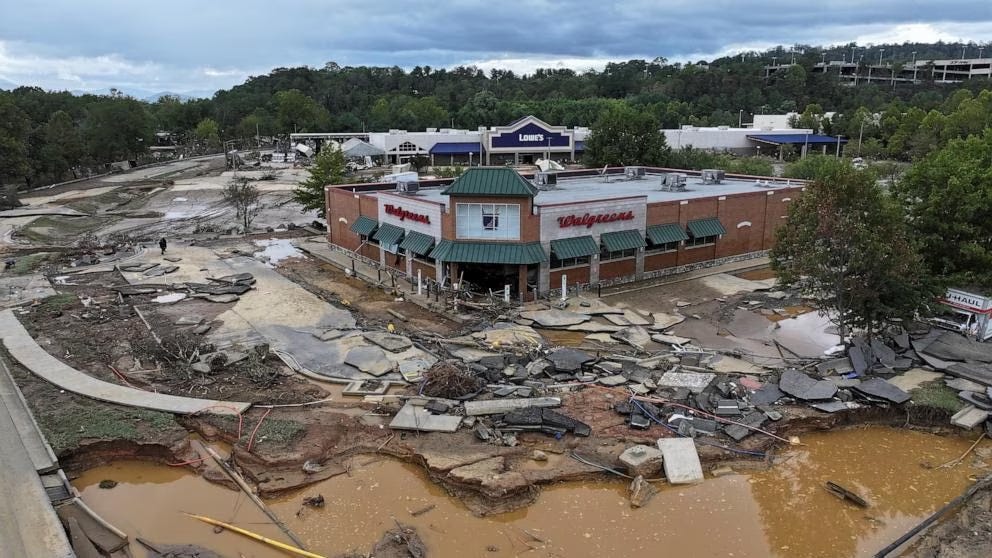
Humana’s Medicare Advantage dilemma worsens amid precipitous drop in 2025 star ratings
The number of Humana members enrolled in top-rated MA plans next year is expected to plummet, threatening the insurer’s ability to bring in rebates and bonus payments — and throwing the company’s chances of turning a profit in 2026 into doubt. Only 25% of Humana members will be in plans with quality ratings of four stars or above next year, down from 94% this year, Humana said in a securities filing on Wednesday. The star rating system measures plan quality on a scale from one to five stars. Higher stars give insurers favorable positioning in the program in addition to lucrative bonuses. As such, insurers defend their stars fiercely, while investors watch warily for any changes… (via Healthcare Dive)
Mendaera grabs $73M for handheld, needle-based robotics system
Mendaera has raised $73 million in venture capital funding to continue the development of its handheld robotics platform for needle-based, percutaneous procedures—spanning biopsy, vascular access, pain management and more. It’s those types of commonplace procedures, the Silicon Valley-based startup said, that are facing a particular crunch amid shortages of trained healthcare providers and ever-increasing demand. One of Mendaera’s goals is to bring the benefits of robotics to less involved but still complicated procedures—and expanding its use outside of major interventions… (via FierceBiotech)
…robotics and AI have evolved to a point where we can deliver broader benefits across all parts of the healthcare system and enable higher standards of care for more patients.” — Josh DeFonzo, CEO
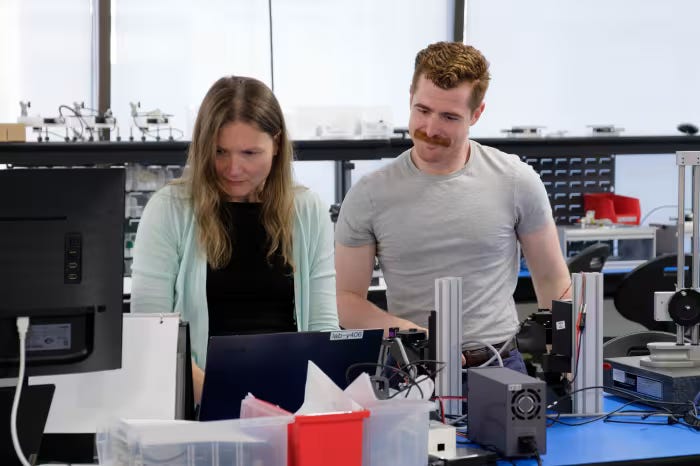
Kidney transplant policy spurs lawsuits claiming racial discrimination
A growing number of lawsuits claim the nonprofit that administers the nation’s organ transplant network used a racist calculation to require Black people with kidney failure to be sicker before they could receive a transplant. At least 10 lawsuits have been filed against United Network for Organ Sharing across the country since April 2023. Lawyers involved say they expect the volume of cases to grow as more people learn they were affected… In June 2022, UNOS announced it would stop relying on the race-adjusted calculation, which was first used in the 1990s. It gave hospitals until January of this year to identify Black patients who were impacted and request adjustments to their places on the wait list… (via Reuters)
DaVita Appoints New COO, David Maughan
Kidney care services provider DaVita announced that David Maughan is the company’s new chief operating officer (COO), while Mike Staffieri has transitioned into the role of COO emeritus. Maughan has been with DaVita since 2006, most recently serving as a senior vice president, overseeing strategic functions dedicated to DaVita’s hospital and home treatment businesses. His leadership also extended to functions like human resources, talent strategy, IT, state government affairs, marketing, and communications… (via docwire)
Life sciences VCs beat generalists in backing IPO- and M&A-bound companies
Sector expertise is a significant asset in fields like life sciences, where generalist firms may lack the technical knowledge required for deep due diligence. Healthtech and pharma companies backed by firms with deep expertise were far more likely to record a successful IPO or acquisition than their generalist peers—with exit success rates of 75.5% in healthtech and 82.6% in pharma. Those exits imply better returns for LPs: The median multiple on invested capital for pharma deals led by specialist firms was 1.5x, versus 1.3x for generalists… (via PitchBook)
American Nephrology Nurses Association launches new fellowship program
The program is open to ANNA members interested in nursing, clinical settings, education, research and leadership. An application portal will open from October 2024 to November 2024.
“Becoming a fellow of [ANNA] demonstrates to nephrology nurses and kidney care leaders, both in the U.S. and around the world, the life-changing work nephrology nurses do to improve the lives of those with kidney disease, as well as their innovative efforts to help people with chronic kidney disease delay disease progression and enhance kidney wellness.” — Angie Kurosaka, 2022-23 National President
Mass General Brigham easing hospital ER overcrowding with healthcare at home
With an average of 1,500 patients arriving at its emergency rooms daily in early September, and a nearly nine-hour wait for an inpatient room, Mass General Brigham is easing a capacity crunch with expanding at-home health care. The Home Hospital program at Mass General Brigham has been in place since 2017, but what began as a pilot program is now accelerating to ease the capacity crunch. This month, Home Hospital hit a milestone of 70 beds, making it the largest home hospital in the country… (via WCVB Boston)
A study by Harvard Medical School found that patients needed home hospital care for an average of 6.3 days. And just 6.2% of them ended up needing to enter a physical hospital facility during that time. The mortality rate during home hospitalization was .5%.
Rural areas are increasingly becoming specialty care deserts
Rural areas in the US face a critical shortage of specialty healthcare providers, with 77% of rural counties considered care deserts. Rural residents tend to travel farther to access care, with a 2022 study showing that these patients travel an average of 120% more miles per trip—nearly 10 times more—than urban residents. But experts say certain measures, such as incentivizing physicians to work in these areas and simplifying the specialty referral process, could help reduce disparities… (via Healthcare Brew)
There are simply fewer specialists living and practicing in these areas. While 20% of the US population lives in rural areas, just 10% of clinicians practice there, according to a 2023 study.
Community Voices
A collection of insights, opinions, updates and upcoming events from your peers and fellow explorers across the Kidneyverse.
📬 Submit your updates here.Eugene Lin: "How can the government or health insurance companies be involved in designing a system so that our ultimate goal is health, and not just health care?" In our first episode of the brand new Signals podcast, Alice, Lilian and I sat down with nephrologist and health economics researcher Dr. Eugene Lin to hear his take on value-based care. (Part 1, Part 2)
Chye Chung Gan: Another milestone checked ✅ Renal artery denervation in a person with resistant hypertension with Medtronic Simplicity Spyral RDN. Despite the 5 antihypertensive medications, the SBP always 158-170mmHg. Post RDN was 140ish. Today (D2 post RDN) the blood pressure was 140/92 mmHg.
Liz O’Day: One of the many things that I am proud of Olaris, Inc is our commitment to education-- with our first product myOLARIS-KTdx now available for kidney transplant patients we are kicking of a series to highlight the amazing science, biology, medicine, technology and more that helps make transplant possible. As a first step learn about the central role kidneys play in our bodies!
Anitha Vijayan: “Exciting day for Intermountain Health Kidney Services as we expand our coverage to Utah Valley! We opened our clinic on yesterday Oct 1, 2024 and we are looking forward to collaboration and partnership with primary care physicians, cardiologists, endocrinologists and other specialists at Utah Valley. We are dedicated to serving the UV community for any kidney care needs, specifically proactive, goal directed medical therapy in CKD.”
Evelyn Goodfriend: “I had a fantastic time at the Digital Health New York summit last week. It was an honor to share insights on value-based care alongside other industry leaders. The panel discussion on specialty value-based care with Ali Khan, MD, MPP and Robin Shah was engaging, thanks to our expert moderator Vivek Garg, MD, MBA. Connecting with old friends like Rob Cohen, Lisa Sasko, MA, MBA and Shantanu Nundy, Alice Wei, M.D. and making new connections was also a highlight. Many thanks to Bunny Ellerin and the DHNY team for hosting such an energizing event.”
Henry Cremisi: “Treating the cause of kidney disease is an aspirational and lofty goal. In each renal etiology this provides unique and distinct challenges and opportunities. This focus on the causation in no way obviates the importance of treating the consequences of kidney injury. The benefits of ACE, ARB, ERA, MRA, and SGLT2i in mitigating and ameliorating renal damage are paramount as damage of some magnitude to the kidney is present by the time these individuals come to the attention of medical professionals…This is an exciting time to be a nephrologist.”:
Yubin Park: “Lots of criticism on value-based care - so, here's my quick take. First, I'm not denying VBC has a lot of issues. But I'd like to separate two things: 1) the core idea of VBC and 2) the actual implementation of VBC. In my view, a lot of problems come from the actual implementation of VBC. It's not easy. The workflow is already complicated, and often adding VBC is just adding a whole heavy layer to the already complex system. But the core idea of VBC is, in my view, as simple as this: let's pay for "quality" not "volume." There would be a thousand (and more) different ways to get there, and millions of ways that seem like getting there but don't make it…”
John Thompson: “It’s been a busy couple of days here in Guatemala. I’m humbled to be a part of such a talented team that are lending their expertise to address Global Health Equity and Access to Care. In two days our team has placed approximately 30 Fistulas in Pediatric Patients in Guatemala… I’ve also had the privilege to teach and train Nephrology Fellows, Nurses, and Technicians on Fistula Care, Infection Control, and Cannulation Techniques. This experience as always has renewed my passion to continue to address global health equity and improve outcomes across the globe.”
Kyle Smith: “Research presented today in poster form at CIDA 2024, Washington DC…representing Dallas Nephrology Associates, ATSU College of Graduate Health Studies, Tarleton State University…special recognition is due Fresenius NA…”
John Carroll: “Trending again today, likely because it was featured in the weekend report. If you didn't see it, or promised yourself you'd read it later, I'm offering it back up. It's a bit far-fetched, but we have to do something about rare disease research to make it more feasible.”
Lisa Fitzpatrick: “How do you think trust influences healthcare ROI? We don't measure trust as a driver of health outcomes do we? Maybe because it is perceived as too subjective? I think it is rather concrete. How do you measure and think about it?”
NANI: “As value-based care (VBC) continues to shape the healthcare landscape, practices like NANI have positioned themselves as pioneers in adapting to this new model. CEO Brian O'Dea shared how NANI has not only embraced VBC but also thrived by focusing on patient outcomes, cost efficiency, and collaborative care. Listen to the interview here.”
Events
Zachary Sutton at RPA: “A fantastic panel on the Increasing Organ Transplant Access (IOTA) Model moderated by Prince Anand and Goni Katz featuring Tom Duvall, Benjamin Hippen, MD, FASN, FAST, and Amber Reeves-Daniel, DO, sharing concerns and benefits of this payment model.”
Alison Duffey at FNCE: “Thrilled to have planned the session on Nephro-cardiology for FNCE Monday morning [with Rory Pace and Parta Hatamizadeh]! Get your FNCE app, mark it on your “favorite” list and see us there to start the day (I’m moderating this one, too!). It promises to be so full of information and interventions for you and your patients! Come say hi after the session!”
KidneyCure: The 2025 KidneyCure grant cycle is now open for new investigators and fellows looking to create a world without kidney disease! Learn how Laisel Martinez, PharmD, MS, from the University of Miami, leveraged this funding to further her research. Take the next step in advancing kidney research by applying today. Link to apply here.
Edgar Lerma at ASN: “If you are attending the American Society of Nephrology's Kidney Week, please join us at Trivia Night on Friday, October 25 at 7pm PT! Moderators Edgar Lerma, Andy Lazar, and Leticia Rolon.”
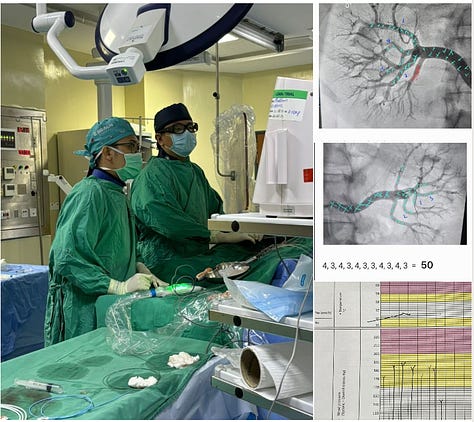
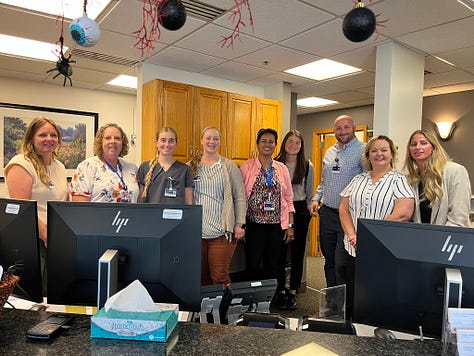
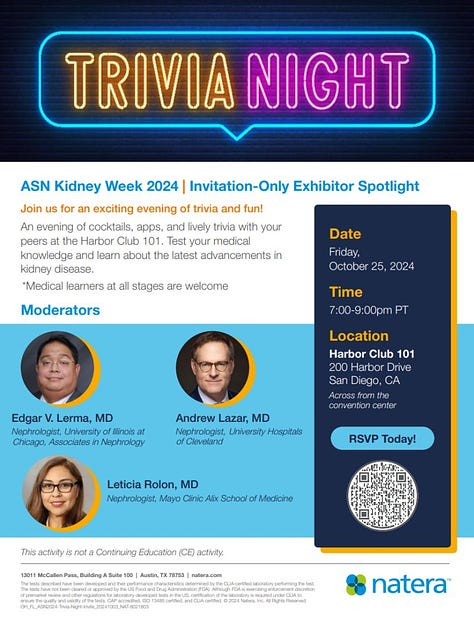
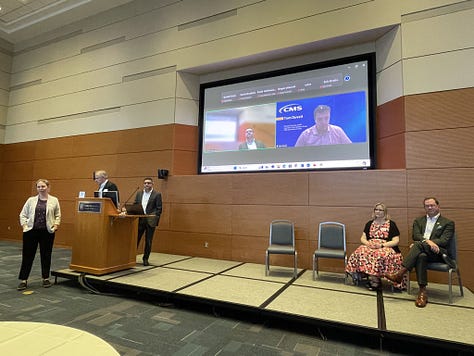
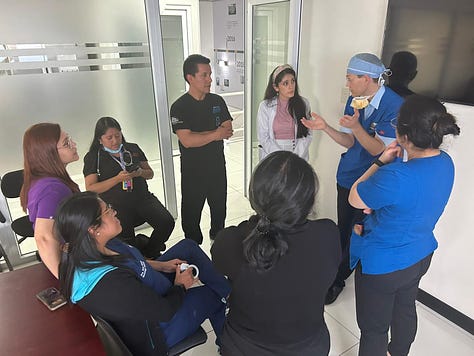
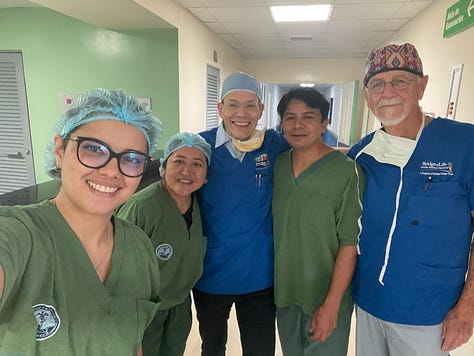
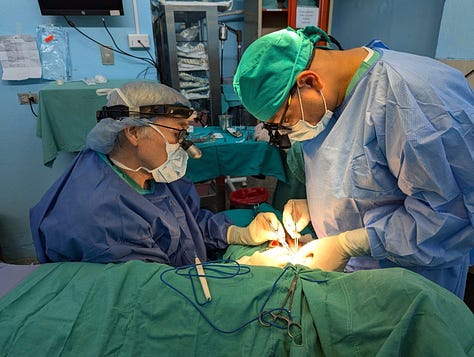
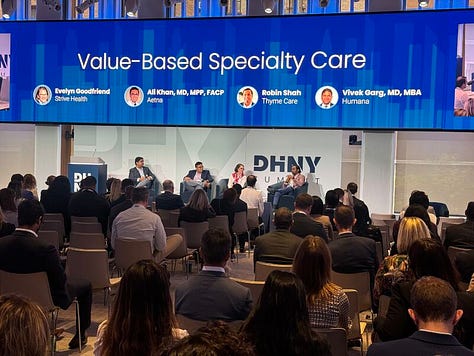
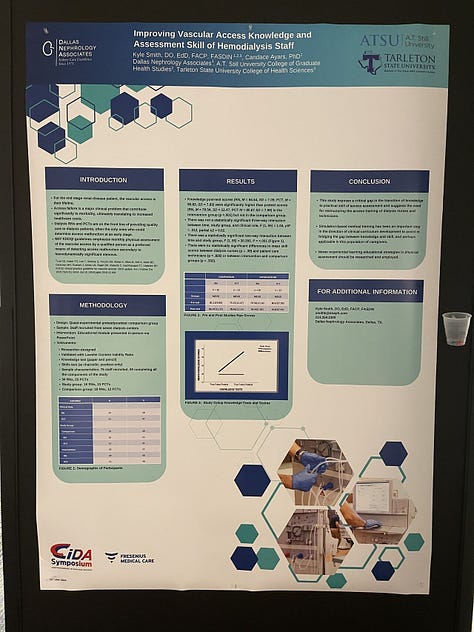
Support Signals
Apply to become a Signals sponsor 🚀: We're accepting applications from companies looking to get in front of 12,000+ monthly readers across the Kidneyverse— from industry, academia, investment, advocacy and government.
Kidneyverse Careers Job Board 💼: Explore top job opportunities across kidney care, from startups to established industry players. Whether you're hiring or looking for your next move, Kidneyverse Careers is the place to connect with top talent and cutting-edge companies. Have an open role you want sent out to our community? Submit it here.
Submit News & Tips to the Signals Inbox 📬: Got a story, tip, or update that should be on our radar? Send it our way through the Signals Inbox. Your contributions help shape the conversation and keep the community informed on the latest developments.
Join Signals Live Audio Events 🎙️: Participate in our next monthly Signals Live session on LinkedIn, where we discuss the latest trends, innovations, and news in kidney care. These drop-in audio events offer the chance to engage with industry leaders and share your insights in real time.
###
![Signals From [Space]](https://substackcdn.com/image/fetch/w_80,h_80,c_fill,f_auto,q_auto:good,fl_progressive:steep,g_auto/https%3A%2F%2Fsubstack-post-media.s3.amazonaws.com%2Fpublic%2Fimages%2F55686857-6b99-45a6-ac0f-09c9f023f2a0_500x500.png)
![Signals From [Space]](https://substackcdn.com/image/fetch/e_trim:10:white/e_trim:10:transparent/h_72,c_limit,f_auto,q_auto:good,fl_progressive:steep/https%3A%2F%2Fsubstack-post-media.s3.amazonaws.com%2Fpublic%2Fimages%2F4d588ac1-7fac-4bd4-829d-fc7b4e8f1326_1512x288.png)

![Signals From [Space]](https://substackcdn.com/image/fetch/w_36,h_36,c_fill,f_auto,q_auto:good,fl_progressive:steep,g_auto/https%3A%2F%2Fsubstack-post-media.s3.amazonaws.com%2Fpublic%2Fimages%2F55686857-6b99-45a6-ac0f-09c9f023f2a0_500x500.png)


